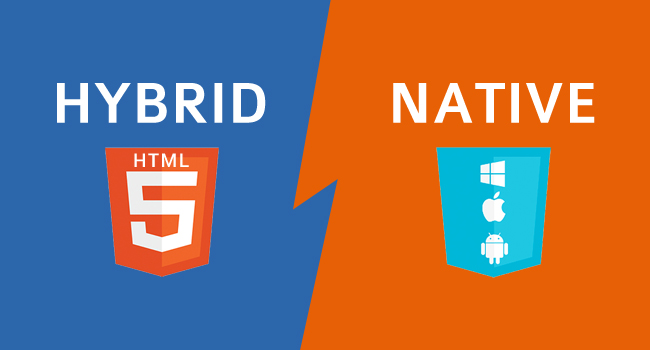
Hybrid vs Native Apps: Best Mobile Application Platform in 2017?
Hybrid vs Native Apps: Best Mobile Application Platform in 2017?
The entire world of mobile app development is quite exciting but sometimes it is bit confusing. The moment you start thinking for the development of a mobile app you come across two different types of apps. One is the Native app and other is the Hybrid app and more importantly you have to decide which one you should go for?
Don’t worry! We have done thorough research and list out few factors which might help you to make the right decision. Let’s take a look:
A native app is a sort of mobile application which has been written in a particular programming language and it caters to the platform it is being specifically developed for. This is typically objective which means the native apps are specifically written in the languages that are accepted by the platforms.
For example: Swift or the objective C is being utilized to write the iOS based applications and Java is being used to write the Android based applications.
Whereas Hybrid apps are written in HTML, CSS, and JavaScript and they typically run in the web view which is a kind of simplied browser utilized within the app.
Since native app has been developed in a mature kind of ecosystem which adheres to the guidelines of a particular type operating system, it possess the benefits of faster performance, ease of accessibility alongside the utilization of the built-in capabilities of the mobile device.
On the other hand, Performance is a major disadvantage in case of the Hybrid apps. Since hybrid apps typically load in the browser web view, they perform well in the browser only and there is a substantial amount of work which is involved in getting the Hybrid app run on different platforms.
Hybrid apps are less tedious to develop and are developed at reasonable price as compared to native apps. To build a Hybrid app, developer has to maintain just one code but in case of Native app code you need an app developer for each platform.
Native apps provide better user experience as compared to Hybrid apps because they are platform specific, user can navigate and interact with the app without any loading delays. While Hybrid apps doesn’t provide good user experience, users can observe that the app is not responsive sometimes.
Inspecting and Fixing bugs of Native applications are considerably less demanding and faster with the help of native development tools whereas there are not reliable hybrid app development tools to troubleshoot the issues so sometimes developer might take extra time to fix up a small issue.
Maintenance of Native app can be complicated for both Users and Developers because they have to handle multiple versions of same information on different platforms though Hybrid app maintenance is as simple as maintaining a web page as there are relatively few versions to be maintained.
Both Native and Hybrid apps have their own pros and cons, and that is why final decision is absolutely up to you to choose which of them fits you better. And in order to take the right decision, it’s imperative to comprehend the differences of every alternative.
Native app platform is most likely an ideal choice for the development of mobile app owing to its higher performance, high-end security and best in class user experience. However in-case you are opting for the Hybrid app, it will ensure that your mobile app is prepared for the cross-platform and it can be designed in short period of time and within limited budget.
Please share your opinion and experiences on Hybrid vs Native Apps Development in comments below!
































